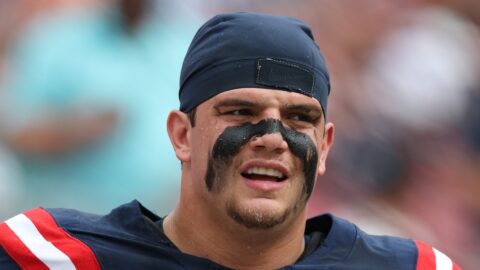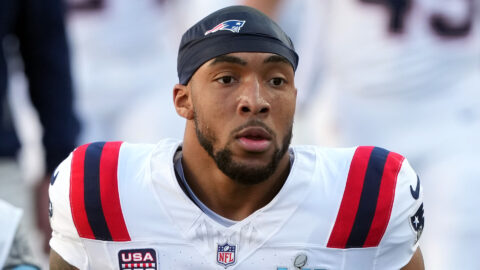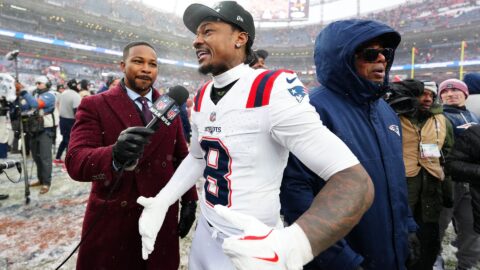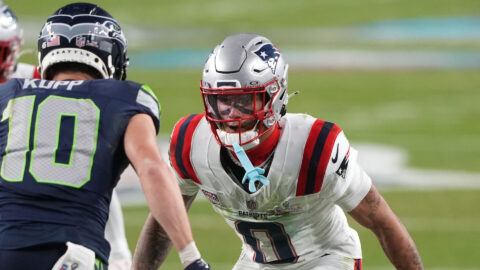The Patriots don't want to play chicken with a man of Vince Wilfork's stature. If they slap him with the franchise tag, it's going to get ugly.
Thursday marked the first day of a two-week span in which NFL teams can use their franchise tag on one of their players. Teams are limited to one franchise tag per season, and they can only assign it to their own players who are becoming free agents. Players have no leverage in the matter. If they are tagged, they are forced to sign the contract and honor it on the field.
The franchise tag is a guaranteed, one-year contract worth either the average salary of the five highest-paid players at a specific position, or a 20 percent raise from the player's salary from the previous season, whichever is higher. If Wilfork is franchised, he would make $7.003 million in 2010, which was the average annual salary of the five highest-paid defensive tackles in the 2009 season.
On one hand, it makes a lot of sense for the Patriots to put the franchise tag on Wilfork, who is literally and figuratively the anchor of their defense. Though Wilfork made less than $3 million in 2009 — the last season of his six-year rookie contract — a $7 million tag would still be a great value from the Patriots' side. There's also nothing to stop them from franchising him again in the following season, which would cost a minimum of $8.4 million.
Plus, Wilfork will turn 29 in November. Think of this from the Patriots' side for a second. With the increasing possibility of a lockout in 2011, would they really want to give a guy a long-term extension, lose a full season toward the end of the prime of his career, and get him back on the field as a 31-year-old? Granted, 31 isn't the new AARP age, but it's tough to give big money to a player whose career could be shortened by a work stoppage.
During a candid session with the media in the locker room toward the end of last season, Wilfork, in so many words, said he would be insulted if he were franchised. He felt as though he deserved a long-term contract based on his on-field performance and off-field professionalism. Wilfork never missed any mandatory workouts last offseason, which is a common occurrence for unhappy players in today's game, and he played hurt through much of the regular season, a decision that could have cost him money on the open market.
If the Patriots do franchise Wilfork — a move that has been heavily anticipated for months — they'll lose any chance they might have had to sign him to a long-term extension after 2010, because he'll likely wash his hands with the organization. He'll be able to hold out but will eventually have to play in the regular season to earn his year's worth of eligibility. Basically, if Wilfork decided he’d hold out for all of 2010, he wouldn't get paid and would also remain in the Patriots' control for the following season.
The Pats' third option, which is the most unlikely of the three, would be to let Wilfork stroll away into the free-agent market. They'd get nothing in return, would lose one of their best defensive leaders and have yet another position to fill through the draft or free agency. For a team with continuous Super Bowl aspirations, that would just be too much rebuilding for one offseason.
Each side has a strong case in this matter. If the Patriots feel as though they only want Wilfork for one more year — and are willing to take the gamble of another locker room uprising — they'll franchise him and discard him in 2011 like they did with cornerback Asante Samuel.
In terms of dollars and cents, franchising Wilfork would be a good move for the Patriots. But business isn't just black and white. The front office and ownership would continue to send a poor message to its players, as well as players around the league and future draft picks, that they're only as valuable as their rookie contract and first franchise tag.
Wilfork has been one of the most valuable members of the Patriots' defense during Bill Belichick's time in New England, and the defensive tackle did things the right way while singing the company line in 2009. If the Patriots don't reward him, it's hard to imagine it will get better from here.



